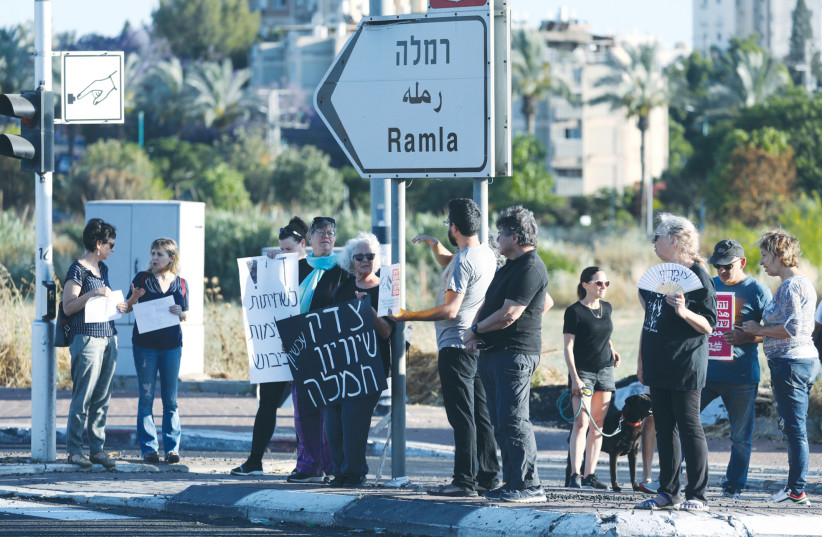The IDF Home Front Command’s Southern Branch will respond to internal security incidents such as riots faster and more accurately during future military operations.
During Operation Guardian of the Walls in May, riots broke out in mixed Arab-Jewish cities such as Lod and Jaffa, as well as in the South where Bedouin threw rocks at cars driving along the highways.
Two people were killed in Lod: Yigal Yehoshua was killed after being stoned by Arab rioters, and Mussa Hassuna was shot dead by Jewish vigilantes. Several civilians were injured, including Saeed Moussa, who was seriously injured after he was attacked by a mob in Bat Yam.
“What bothered me the most was seeing issues that we did not anticipate,” said Col. Sagi Baruch, who has headed the command’s southern branch for the past year and a half. “Our goal is to prepare a response to the challenge before it arrives. I do not know when the next operation will be, but hopefully, we will be able to improve and be faster and more accurate on the topic of internal security and other vulnerabilities.”
According to Baruch, the command is “constantly dealing with information to improve and see how we can be more accurate.”

Those vulnerabilities, he said, include people with disabilities, and those who do not have a family or anyone to turn to during emergency situations such as a war.
“We are very busy identifying those dark vulnerabilities because we know that national resilience is built on helping society’s weak.”
One vulnerability that has yet to be fixed are the bomb shelter windows in communities close to the Hamas-run Gaza Strip.
Following a recommendation by the Home Front Command, the IDF announced in June that the windows in the bomb shelters in communities within seven kilometers of the Gaza Strip would be replaced with thicker replacements due to the projected increased lethality of rockets fired from the enclave at a short distance.
Many bomb shelter windows have a thickness of only 16 mm. (3/5”) as regulations do not demand more. Standard bomb shelter windows are a standard 24 mm. (approx. 1”) thick, and regulations require the windows to be 32 mm. (1¼”) thick.
Despite new regulations and plans by the Home Front Command to fix the windows, there’s been no headway on changing them. The estimated cost is between NIS 60 million and NIS 119m.
According to Baruch, the work on properly fixing the windows is likely to begin by the end of the year.
“I think it’s important for people to understand that the more protected place is the safe room, and that’s our best solution,” he said. “But there is no 100%. There can be a fatal or serious injury should there be a direct strike on a safe room, and yet it is the safest place.”
Six-year-old Ido Avigail was killed during the May war when a piece of shrapnel penetrated the window of the bomb shelter where he and his family were sheltering from a barrage of rockets targeting Sderot, border communities and cities in central Israel.
“Unfortunately, this is a very unusual, unfortunate and heartbreaking event,” Baruch said. “But it is very rare.”
The Home Front Command’s Southern Branch won the Chief of Staff Prize this week after a year that saw its members help Israeli citizens through a pandemic and the 11-day military operation.
Baruch said it was the first time the command has received the prize, and that it was “an honor to be recognized” for the work the troops have done over the past year.
“The last year was very significant in the Southern District and in general,” he said. “We faced the latest corona waves and of course Operation Guardian of the Walls. The command was able to contend with both of these challenges thanks to the mobilization of the command’s regular and reserve personnel and cooperation with civil bodies.”
